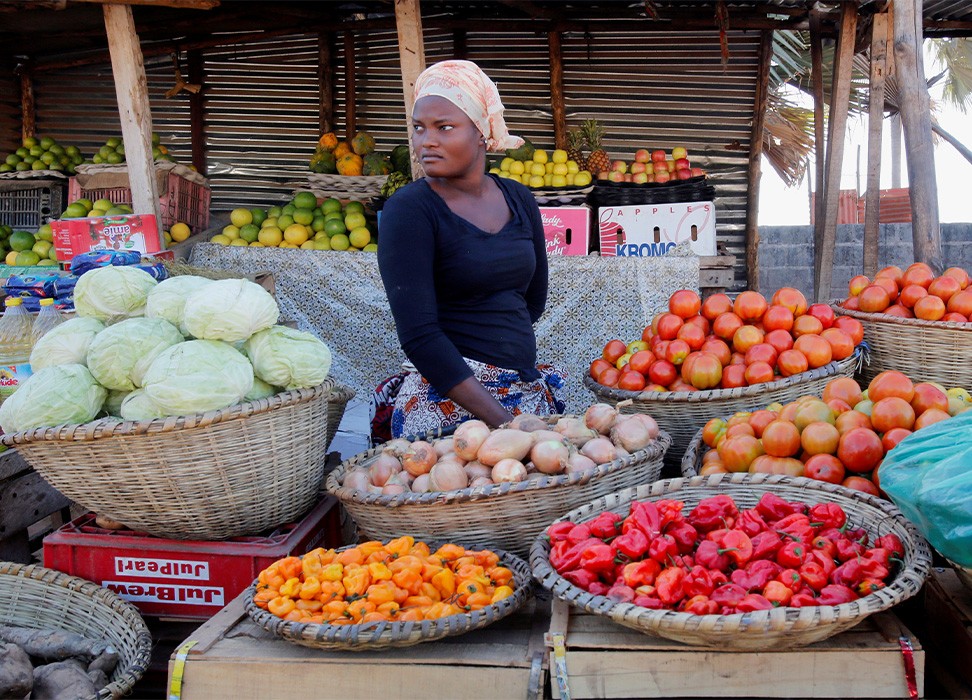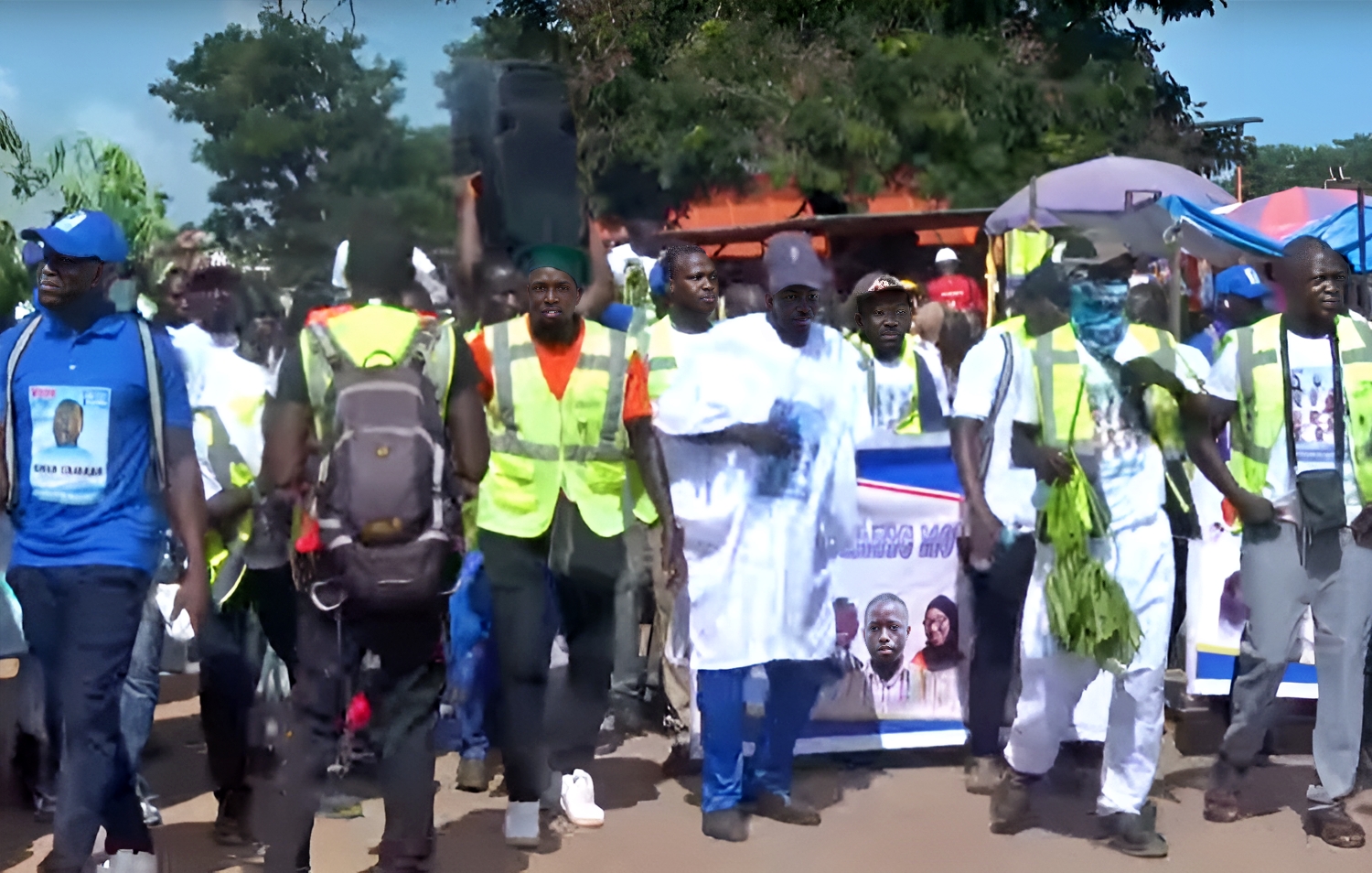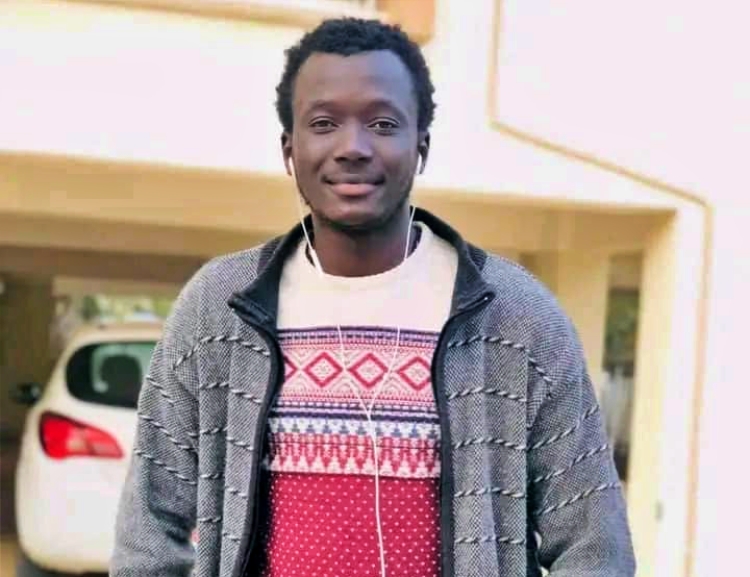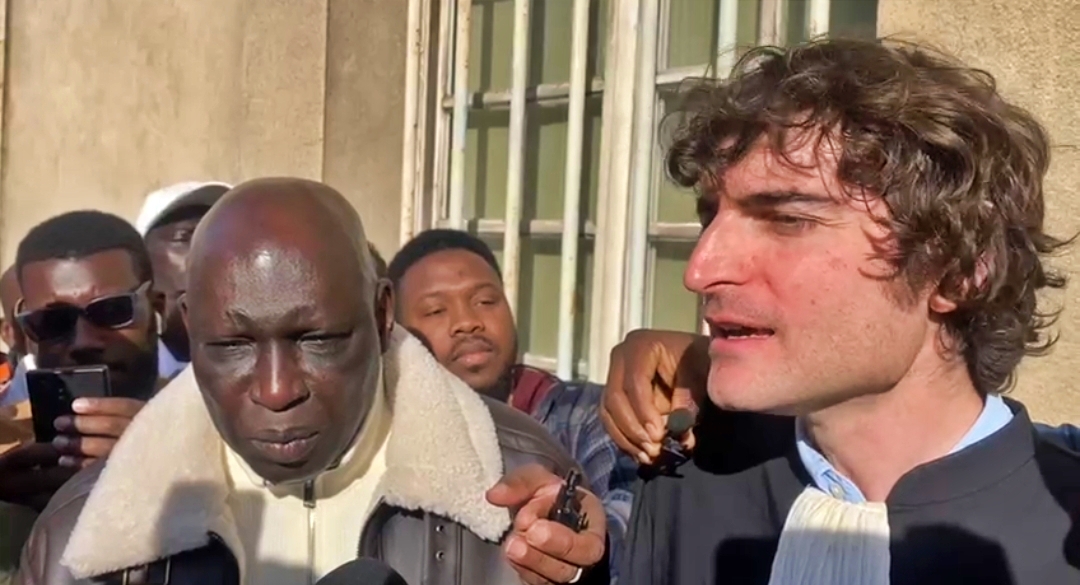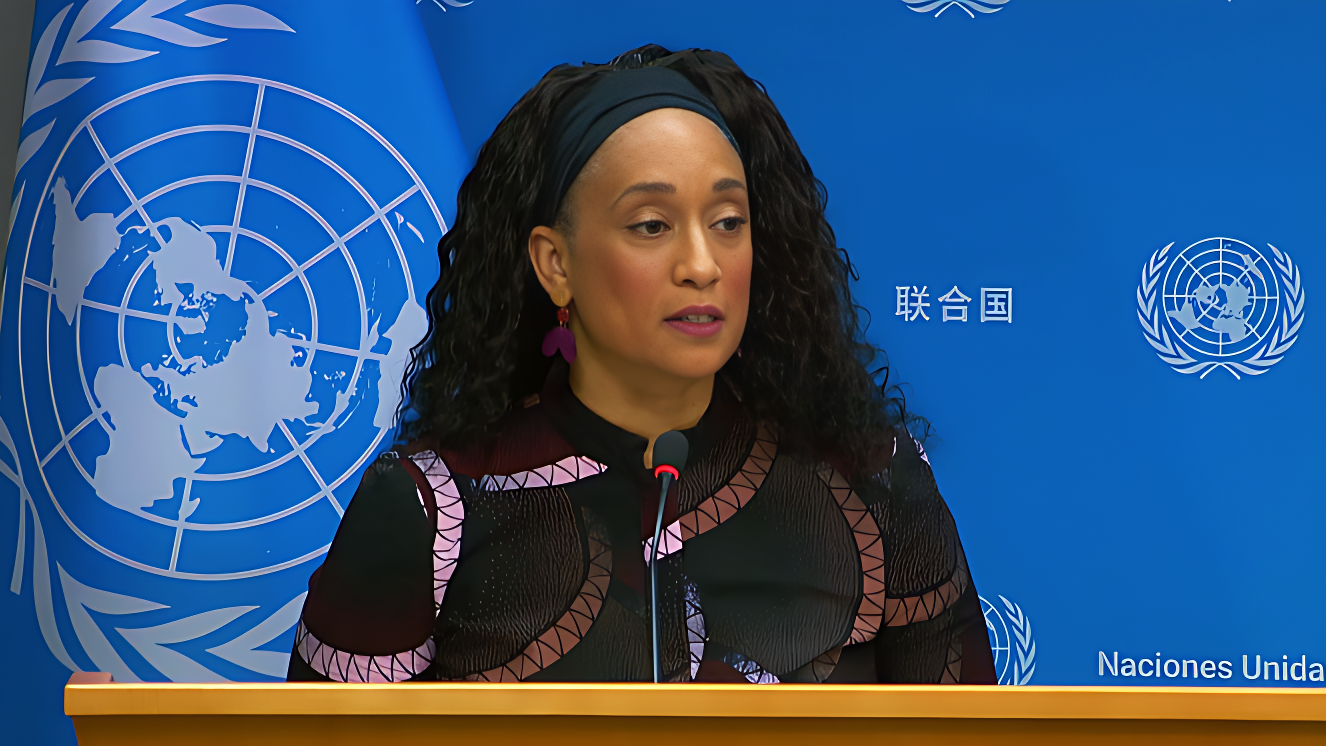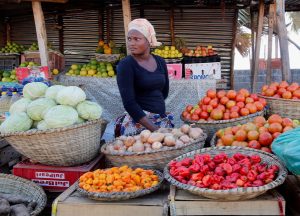Gambiaj.com – (BANJUL, The Gambia) – Following the conclusion of an International Monetary Fund (IMF) mission in Banjul, The Republic’s Mustapha Darboe pressed Finance Minister Seedy Keita and the IMF delegation on a string of pressing questions, from a recent central bank swap to currency depreciation to high-profile accountability concerns, seeking clarity on how those issues affect The Gambia’s fiscal and financial outlook.
Darboe opened by asking whether the Central Bank’s swap agreement with AfriExim (a 75-million facility raised in recent coverage) has any impact on The Gambia’s debt portfolio and whether the IMF has concerns about it.
He also raised broader questions about the Dalasi’s depreciation, the fall in inflation to single digits, the potential drain from central bank guarantees to parastatals and private businesses, and which program targets (if any) remained unmet.
In response, IMF representatives and Minister Keita defended recent policy steps while acknowledging areas needing close monitoring.
The IMF noted the authorities’ move toward a more flexible foreign-exchange arrangement, saying the Central Bank of The Gambia (CBG) has been allowing the exchange rate to float so it can act as a shock absorber while intervening mainly to build reserves.
On inflation, the IMF pointed to “important progress” and cited a decline to 7.6% in August, while stressing that inflation remained above the CBG’s medium-term target and was expected to reach that goal by next year.
On the AfriExim swap, the IMF told journalists it scrutinized the operation in the context of financial-stability safeguards and said it was reassured by steps the CBG intends to take to ensure the agreement would not endanger stability.
Minister Keita echoed the emphasis on fiscal sustainability, adding that discussions with the IMF addressed both fiscal and financial-sector issues.
“Tough Steps” and Governance Commitments
When asked to specify the “tough steps” the government had committed to, Minister Keita highlighted strict expenditure control and strengthened resource mobilization. “The effort has been substantial. We’ve seen a lot of results already this year,” he said, adding that the government intends to persist and extend mobilization next year.
On governance, Keita pointed to concrete commitments under the program: the government has submitted a shortlist of Anti-Corruption Commission (ACC) commissioners to the National Assembly, and, subject to parliamentary approval, the ACC would become fully operational next year. The minister said these measures are part of the package to strengthen accountability and transparency.
Accountability, the Russian Oil Case, and Audit Concerns
Darboe pressed Keita on several high-profile accountability issues, including allegations surrounding a shipment of diesel commonly referred to in local reporting as the “Russian oil” case, a transaction that, journalists say, resulted in millions in revenue not being remitted to the state, and a parliamentary probe whose investigators were reportedly told to stop.
Minister Keita countered that characterizing the shipment as a straightforward tax evasion case is legally simplistic. He explained that the companies involved were international traders not domiciled in The Gambia, and therefore, he said, not automatically subject to domestic corporation tax unless they met tax-residency criteria.
Keita also confirmed that the parliamentary inquiry had found regulatory missteps, chiefly related to the receipt of proceeds in Dalasi rather than foreign currency, and urged journalists to consult the tax laws and the parliamentary report for full context.
Darboe also raised concerns about alleged government spending without parliamentary approval, citing payments such as a reported $1 million to a media entity, and growing efforts to undermine the credibility of the National Audit Office.
Keita repeatedly urged that formal questions be submitted to the Ministry’s registry for official logging and response, saying, “Our doors are open,” and that public records are the appropriate channel for inquiries.
Win-Win, Joint Venture Guarantees, and the Question of Beneficial Ownership
One particularly contentious line of questioning concerned a government guarantee linked to a joint-venture rice import scheme, a transaction critics say benefitted politically connected individuals, including claims involving the president’s nephew.
Keita strongly disputed a number of the allegations. He said the memorandum of understanding (MOU) underpinning the deal included a profit-sharing arrangement, with 70% of net profit to the private partner and 30% to the government, and that no direct government cash was used because the transaction was structured around letters of credit and bank facilities.
Keita stressed that the bank, not the ministry, conducted the credit due diligence and selected the preferred partner, adding that the ministry relied on the bank’s assessment of the transaction structure and safeguards.
“If the transaction had worked, it would have empowered a Gambian business to import at scale,” he said, arguing the initiative was intended as a pilot to build local capacity in commodity imports.
Keita also disputed assertions about who was or was not a shareholder in the named company, saying the ministry had limited ability to probe beneficial ownership beyond what is listed in company registers.
Pressing for Specifics
Darboe sought one more specificity: the IMF had reportedly said, “All targets are met but one.” When pushed for which benchmark had not been achieved, neither the IMF nor the minister immediately provided a detailed public enumeration of the missed metric at the briefing, noting instead that overall program performance has been strong and that technical discussions would continue.
The IMF team said it would maintain ongoing dialogue with Gambian authorities on fiscal consolidation, governance reforms, and safeguards around financial-sector operations.
Meanwhile, Minister Keita invited follow-up questions through formal channels and reiterated the government’s commitment to “strict expenditure control” and to completing governance steps, including operationalizing the Anti-Corruption Commission, that, he argued, will strengthen accountability.
Darboe closed the session, pressing for accountability on the cases and guarantees raised; the minister repeatedly emphasized legal nuances and the need for documentary evidence, while promising that the ministry would respond to formal inquiries lodged through its registry.
As the IMF and government move into follow-up technical work, the public debate over guarantees, accountability, and the effectiveness of oversight mechanisms is likely to remain front and center in Gambian politics and reporting.



